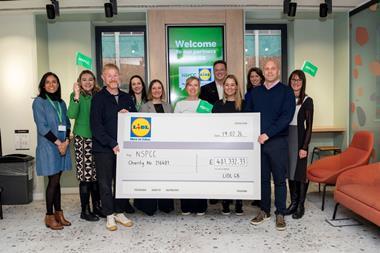>>Londis buyer should be a backer of independents
CHOICES IN A TOUGH WORLD
The decision by the board of Londis to accept KPMG’s recommendation that the business should be sold to one of its many suitors was to be expected. After all, the amount of interest that has been shown in Londis is unprecendented - as is the sort of money that rivals are seemingly prepared to pay to acquire the symbol group. And it would be crazy to ignore what is on offer.
Nevertheless, I can fully understand why many Londis members feel the group should remain independent and owned by its retailers. They argue, rightly, that Londis is a healthy, vibrant business that is performing well.
They can also point to the strength of the delivered sector which continues to swell its ranks as more unaffiliated retailers look to join a symbol or fascia group as a way of protecting themselves from the intense competitive pressures facing all independents.
Indeed, timely new research from IGD shows that delivered wholesalers are driving growth in the overall grocery wholesale sector. As our story on page six shows, delivered wholesalers are forecast to grow their business at an annual rate of 3.5% to £8bn by 2007, thanks to the strength of the symbol groups.
But as the likes of Tesco and Sainsbury continue their aggressive moves into small store retailing, and the various co-ops step up their expansion in this area, it’s clear the competitive landscape is going to change rapidly in the next couple of months, never mind the next few years. As one Londis member told us this week: “Standing still is no longer an option.”
He’s absolutely right. Retailers no longer have the luxury of thinking the competition is the independent food store over the road. Increasingly, it is the Tesco, Sainsbury or Co-op around the corner. So the key question for all independent retailers - and not just Londis members - is how are you going to prosper in the face of such direct competition? A simple question, to which I’m afraid there are no easy answers.
In the case of Londis, its shareholders will probably decide that it makes sense to sell out to a bigger operator in order to improve buying terms and ranging - particularly when you consider who has been circling the group. But what’s also important is that they choose an operator who has genuinely got the interests of independent retailers at heart.
CHOICES IN A TOUGH WORLD
The decision by the board of Londis to accept KPMG’s recommendation that the business should be sold to one of its many suitors was to be expected. After all, the amount of interest that has been shown in Londis is unprecendented - as is the sort of money that rivals are seemingly prepared to pay to acquire the symbol group. And it would be crazy to ignore what is on offer.
Nevertheless, I can fully understand why many Londis members feel the group should remain independent and owned by its retailers. They argue, rightly, that Londis is a healthy, vibrant business that is performing well.
They can also point to the strength of the delivered sector which continues to swell its ranks as more unaffiliated retailers look to join a symbol or fascia group as a way of protecting themselves from the intense competitive pressures facing all independents.
Indeed, timely new research from IGD shows that delivered wholesalers are driving growth in the overall grocery wholesale sector. As our story on page six shows, delivered wholesalers are forecast to grow their business at an annual rate of 3.5% to £8bn by 2007, thanks to the strength of the symbol groups.
But as the likes of Tesco and Sainsbury continue their aggressive moves into small store retailing, and the various co-ops step up their expansion in this area, it’s clear the competitive landscape is going to change rapidly in the next couple of months, never mind the next few years. As one Londis member told us this week: “Standing still is no longer an option.”
He’s absolutely right. Retailers no longer have the luxury of thinking the competition is the independent food store over the road. Increasingly, it is the Tesco, Sainsbury or Co-op around the corner. So the key question for all independent retailers - and not just Londis members - is how are you going to prosper in the face of such direct competition? A simple question, to which I’m afraid there are no easy answers.
In the case of Londis, its shareholders will probably decide that it makes sense to sell out to a bigger operator in order to improve buying terms and ranging - particularly when you consider who has been circling the group. But what’s also important is that they choose an operator who has genuinely got the interests of independent retailers at heart.



















No comments yet